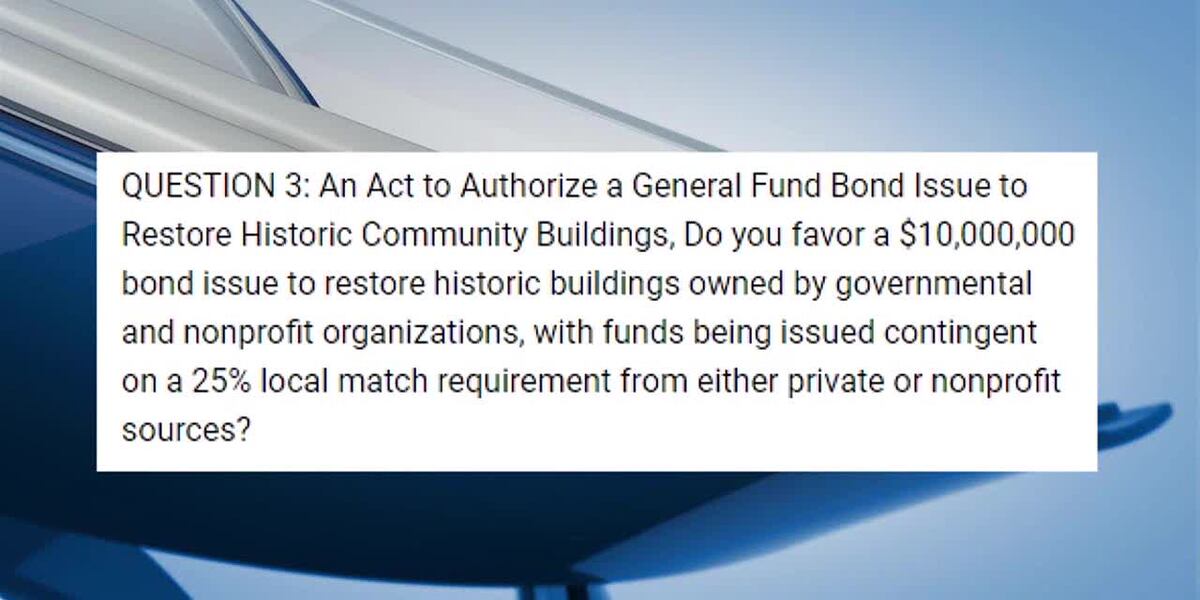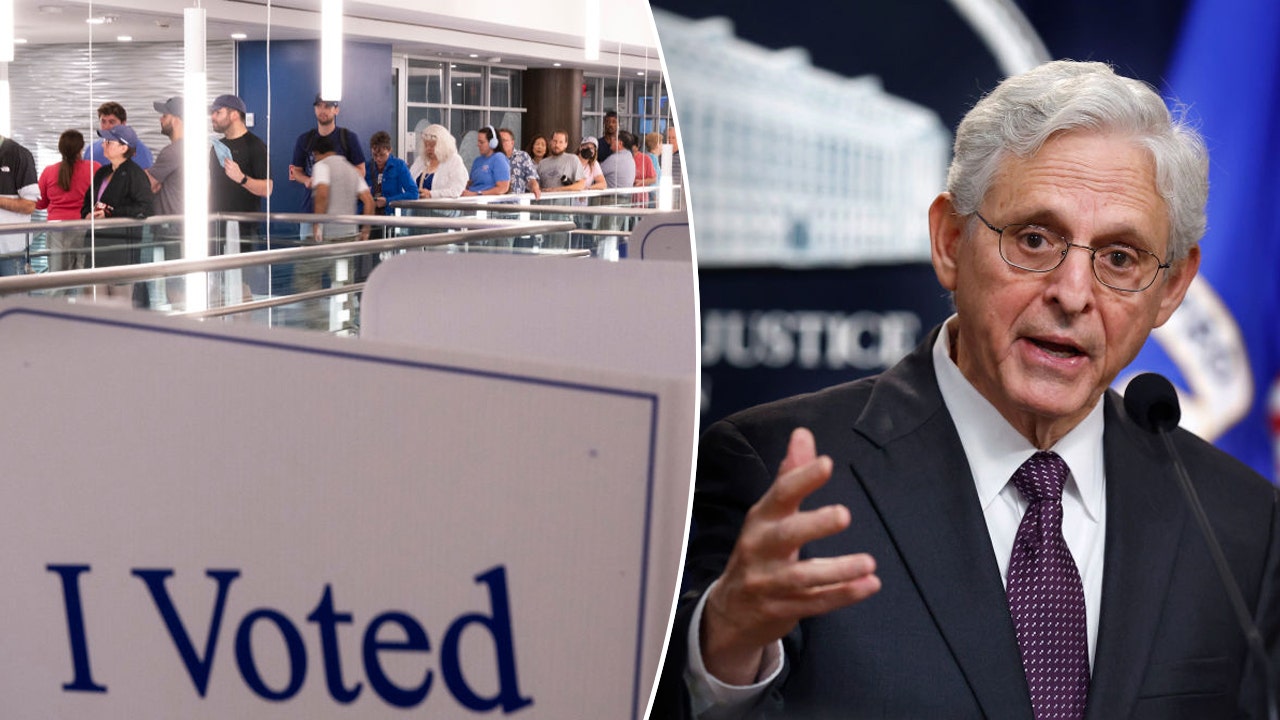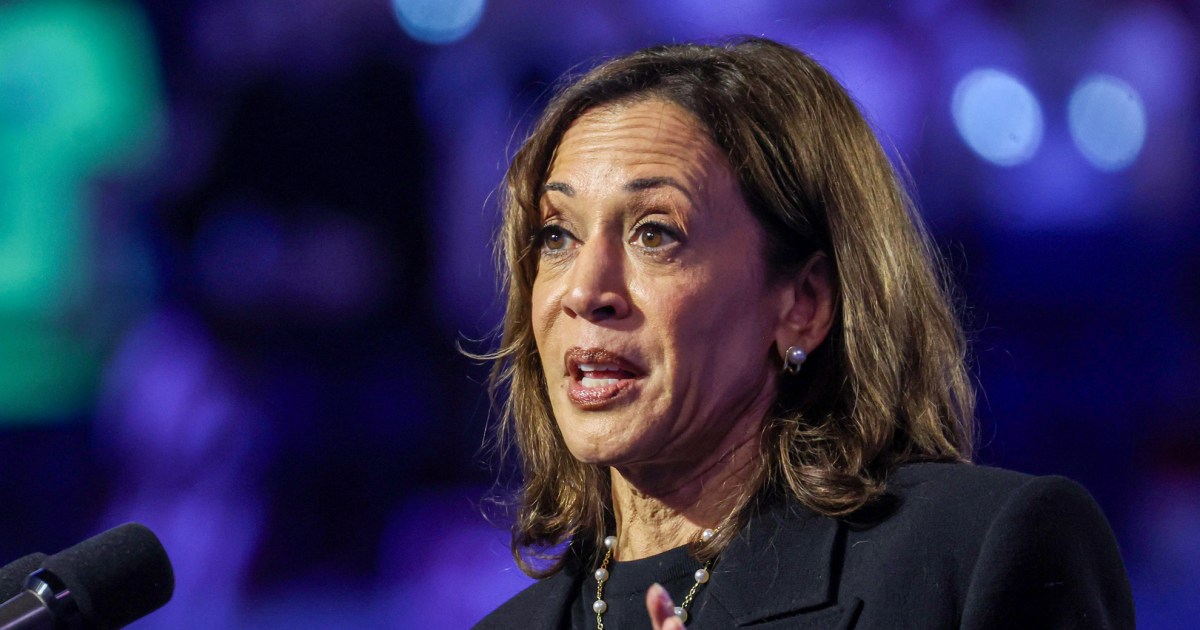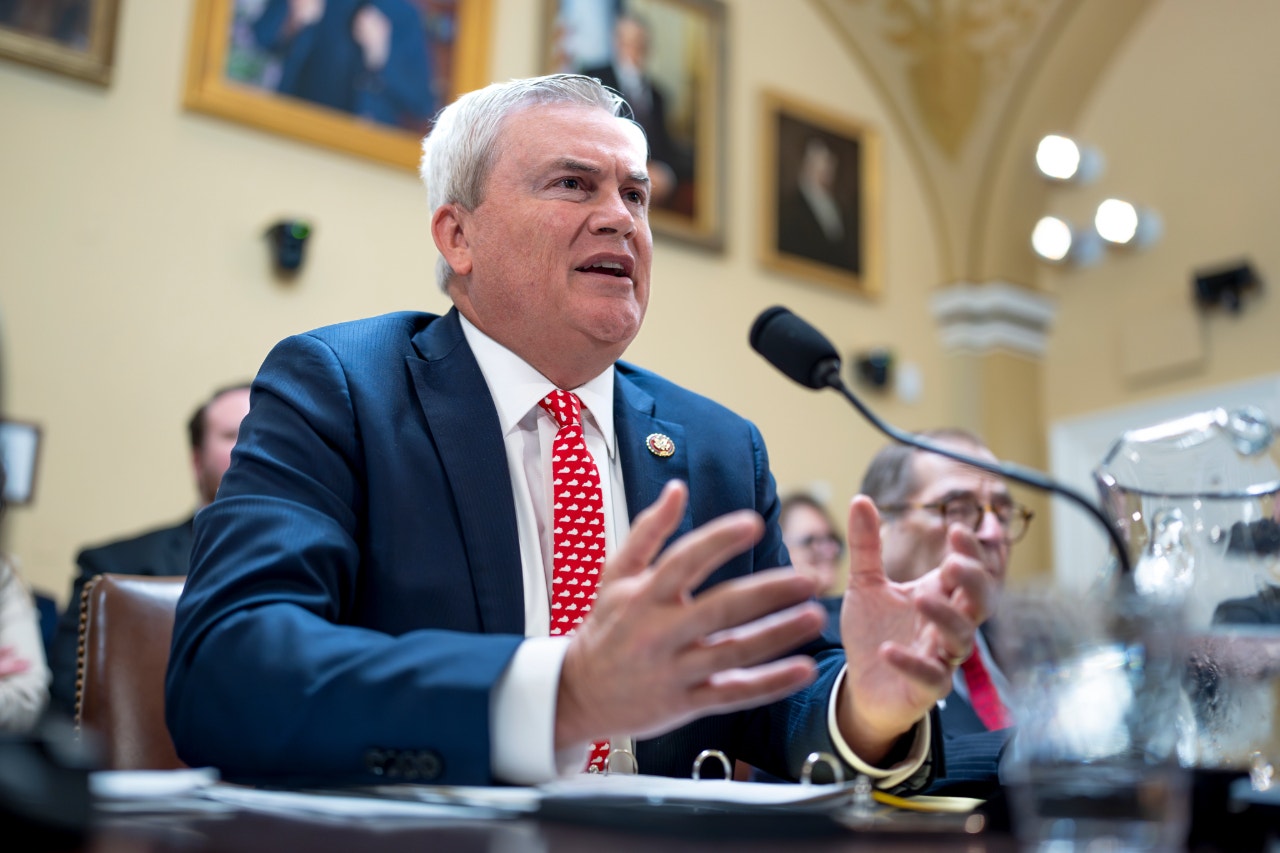World
Putin on a charm offensive as Africa-Russia summit kicks off

Vladimir Putin in on a charm offensive. On Thursday, the Russian president will roll out the red carpet for African leaders as he seeks to shore up Moscow’s position in a continent that’s becoming increasingly important to his country’s geopolitical ambitions.
Alongside the war in Ukraine, food security will be high on the agenda of the second Africa-Russia Summit in St Petersburg, especially after Russia’s decision last week to withdraw from an international grain deal left many in Africa unnerved.
The agreement was brokered by the United Nations and Turkey last year to allow the safe passage of agricultural goods through Ukraine’s ports in the Black Sea despite the war with Russia. While the vast majority of the nearly 33 million tonnes exported since then did not reach the world’s poorest countries, the deal helped reverse spiralling food prices by more than 20 percent, according to the UN.
Russia justified its decision by saying the conditions for the extension of the Black Sea Grain Initiative had been ignored. In the days that followed, it unleashed a series of strikes on port infrastructure and grain depots in the south of Ukraine.
Korir Sing’Oei, Kenya’s principal secretary for foreign affairs, called Putin’s decision “a stab on the back”, but African leaders have by and large refrained from commenting.
In an editorial published on Monday, Putin blamed the West for failing to deliver grain to the world’s poorest and assured African nations that Russia can replace Ukrainian grain “free of charge” as the country is expecting “a record harvest” this year.
“Moscow has always dreamed of an alternative financial and commercial system that is disconnected from the West – something that is now even more urgent given sanctions on Russia,” said Alex Vines, lead of the African Programme at Chatham House, referring to the sweeping measures imposed by Western countries following Russia’s invasion of Ukraine last year.
“And Africa becomes important in this as Russia looks for new partnerships,” Vines added.
Russian officials have said that Putin, at the summit, will address the issue of food and fertilizers, as well as hold bilateral discussions with African leaders.
But, at this event, only 17 African heads of state or government will be present compared to 43 that attended the 2019 summit, leading Russia to blame “interference” from the West.
A number of cultural, humanitarian and technological deals are expected to be signed at the summit, with participants also due to adopt a resolution.
“The main attention will be paid to the prospects for the further development of relations between Africa and Russia with an emphasis on our assistance to the national sovereign development of Africans, ensuring fair access to food, fertilisers, modern technologies and energy resources,” Kremlin foreign policy adviser Yuri Ushakov said this week.
Ukraine war
The two-day event takes place just weeks after a mutiny by the Wagner Group raised questions about the future of the Russian mercenary force.
In recent years, Wagner had been seen as a key component in Russia’s efforts to expand its influence in Africa. However, Wagner’s abortive rebellion against the top military brass in Moscow amid disagreements over the war effort in Ukraine has caused a deep rift between the group and the Russian state.
Foreign Minister Sergey Lavrov and Wagner chief Yevgeny Prigozhin have since made separate statements both suggesting the group will continue to operate in parts of Africa, but it was not clear under whose control.
Wagner troops are known to have been active in a number of countries, including the Central African Republic, Libya, Mali and Sudan. The heads of state of all these countries, except war-hit Sudan, have confirmed their presence at the summit.
In St Petersburg, the African leaders are also expected to be more assertive in their diplomatic efforts to find a resolution to the war in Ukraine – a conflict largely perceived in the continent as an internal European matter which has, however, greater ramifications including on countries in Africa.
Last month, representatives of six African countries visited both Russia and Ukraine in an effort to mediate in the war, but their proposals were largely dismissed by both sides.
Still, analysts say African leaders, who represent the biggest bloc at the UN General Council, have travelled to St Petersburg aware of their increased geostrategic stock in the face of growing competition between Russia and the United States on a number of fronts.
“African stakeholders are increasingly bullish about what they have to offer to the world and can pick for a growing range of suitors,” said Ronak Gopaldas, director at Signal Risk, an African risk advisory firm.
Their goal will be to diversify their economic and political relationships for maximum strategic benefit, while also looking for tangible results beyond cosmetic pledges, he added.
“African states are attempting to be kingmakers, rather than be caught in another proxy war,” Gopaldas noted.
A number of the panels at the St Petersburg summit focus on what Moscow describes as a Russia-African shared struggle against “forms of new colonialism imposed by the West” – a narrative that has been central to the Kremlin’s strategy in rallying support in the continent behind its war effort in Ukraine.
Lavrov has notably travelled eight times in Africa since the full-scale invasion of Ukraine in February last year.
But Moscow’s growing geostrategic aspirations have not translated into investments in Africa.
At the first Russia-Africa Summit in 2019, Russia pledged to double trade with African countries to $40bn in five years, yet the trade volume between the two has stalled at around $18bn with Africa importing nearly eight times more compared to what Russia buys from the continent last year.
Furthermore, Russia accounts for just one percent of foreign direct investment that goes to Africa, data from fDi Intelligence shows.
“Moscow doesn’t have much to offer,” said Joseph Siegle, head of the African Center for Strategic Studies.
“Russia’s goal is symbolic; it wants to show that in the minds of many African leaders it remains a central global power, not a pariah.”

World
He’s fast, feisty and could play Quidditch. Meet the bat that won a beauty contest
ASHLAND, Ore. (AP) — A winged creature from Oregon was crowned this year’s winner Thursday in an annual bat beauty contest put on by the Bureau of Land Management.
On Halloween, which was also the last day of International Bat Week, a hoary bat with a feisty personality named “Hoary Potter” defeated “Lestat”, the western small-footed bat from Idaho, in the final round of the contest. It also bested a Townsend’s big-eared bat named “Sir Flaps-A-Lot” from Utah, among others.
The victory marks the third year in a row that a bat from Oregon has taken first place in the contest. Last year, “William ShakespEAR,” a female Townsend’s big-eared bat from southern Oregon took the title. In 2022, a canyon bat named “Barbara” also from southern Oregon was declared the winner.
The federal agency has held the competition since 2019 to raise awareness about the animal’s ecological importance. The bats are part of wild populations living on public lands, and are photographed by agency staff. BLM posted the photos on its Facebook and Instagram accounts, and asked people to vote for the cutest one.
Hoary bats are known for swift flight and wrapping themselves in their own tails to mimic leaves and to hide from predators, the agency said. Because of this attribute, it estimated Hoary Potter would be “the perfect candidate for seeker on this year’s Quidditch team,” referring to the game in Harry Potter that is played on flying brooms.
Emma Busk, the BLM wildlife technician who photographed Hoary Potter, said bats play a key role in the environment by eating insects and pollinating flowers and fruits. But they’re increasingly facing the threats of habitat loss, disease and light pollution, and are often misunderstood as scary disease carriers, she said.
“Less than 1% of all bat populations actually carry rabies, and the bat-to-human disease transmission is actually really low,” she said.
Busk said she hopes the event inspires more love for the only flying mammal.
World
Spain searches for bodies after unprecedented flooding claims at least 158 lives
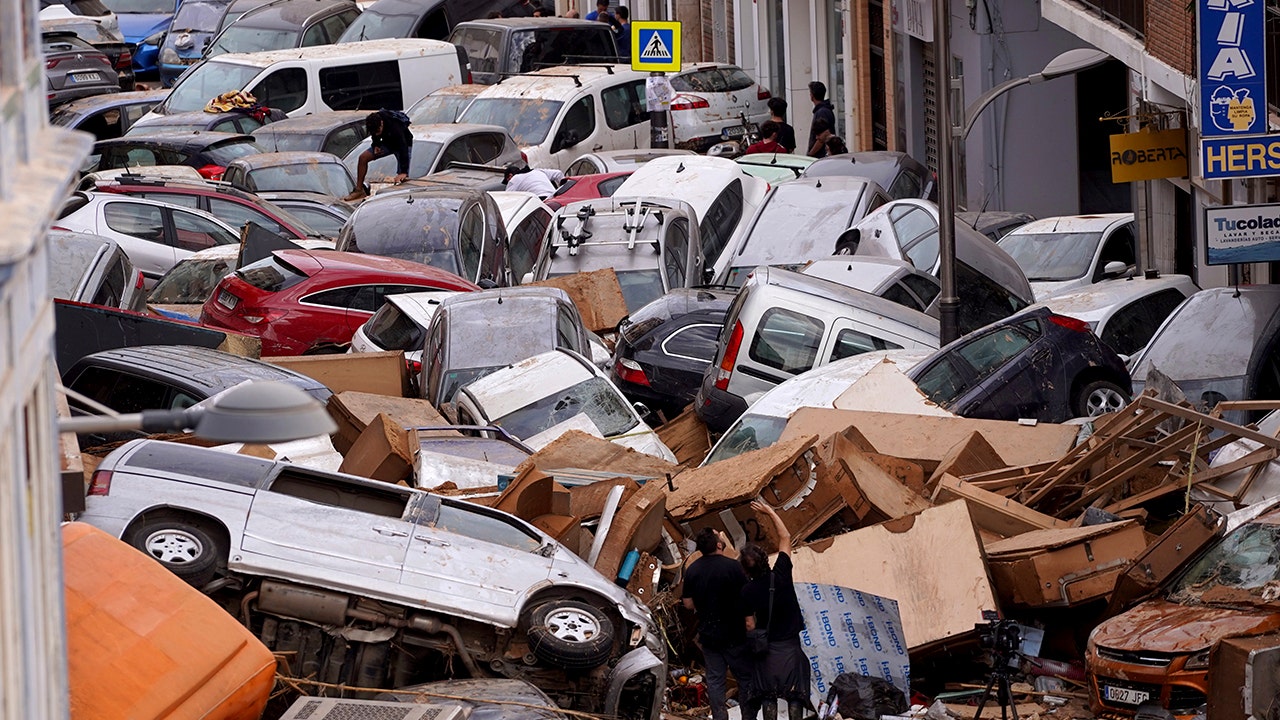
Crews searched for bodies in stranded cars and sodden buildings Thursday as residents salvaged what they could from their ruined homes following monstrous flash floods in Spain that claimed at least 158 lives, with 155 deaths confirmed in the eastern Valencia region alone.
More horrors emerged Thursday from the debris and ubiquitous layers of mud left by the walls of water that produced Spain’s deadliest natural disaster in living memory. The damage recalled the aftermath of a tsunami, with survivors left to pick up the pieces as they mourn their loved ones.
AT LEAST 63 DEAD IN DEVASTATING FLASH FLOODS ACROSS EASTERN SPAIN, OFFICIALS SAY
Cars were piled on one another like fallen dominoes, uprooted trees, downed power lines and household items all mired in mud that covered streets in dozens of communities in Valencia, a region south of Barcelona on the Mediterranean coast.
An unknown number of people are still missing and more victims could be found.
“Unfortunately, there are dead people inside some vehicles,” Spain’s Transport Minister Óscar Puente said early Thursday before the death toll spiked from 95 on Wednesday night.
Rushing water turned narrow streets into death traps and spawned rivers that tore through homes and businesses, sweeping away cars, people and everything else in its path. The floods demolished bridges and left roads unrecognizable.
Luís Sánchez, a welder, said he saved several people who were trapped in their cars on the flooded V-31 highway south of Valencia city. The road rapidly became a floating graveyard strewn with hundreds of vehicles.
“I saw bodies floating past. I called out, but nothing,” Sánchez said. “The firefighters took the elderly first, when they could get in. I am from nearby so I tried to help and rescue people. People were crying all over, they were trapped.”
Regional authorities said late Wednesday that rescuers in helicopters saved some 70 people stranded on rooftops and in cars, but ground crews were far from done.
Vehicles are seen piled up after being swept away by floods in Valencia, Spain, Thursday, Oct. 31, 2024. (AP Photo/Alberto Saiz)
“Our priority is to find the victims and the missing so we can help end the suffering of their families,” Spanish Prime Minister Pedro Sánchez said after meeting with officials and emergency services in Valencia on Thursday, the first of three official days of mourning.
An ‘extraordinary’ deluge
Spain’s Mediterranean coast is used to autumn storms that can cause flooding, but this was the most powerful flash flood event in recent memory. Scientists link it to climate change, which is also behind increasingly high temperatures and droughts in Spain and the heating up of the Mediterranean Sea.
Human-caused climate change has doubled the likelihood of a storm like this week’s deluge in Valencia, according to a rapid but partial analysis Thursday by World Weather Attribution, comprising dozens of international scientists who study global warming’s role in extreme weather.
Spain has been suffering from an almost two-year drought, meaning that when the deluge happened late Tuesday and early Wednesday, the ground was so hard that it could not absorb the rain, leading to flash floods.
The violent weather event surprised regional government officials. Spain’s national weather service said it rained more in eight hours in the Valencian town of Chiva than it had in the preceding 20 months, calling the deluge “extraordinary.”
In Paiporta, a community of 25,000 next to Valencia city where mayor Maribel Albalat said Thursday that not fewer than 62 people had perished.
“(Paiporta) never has floods, we never have this kind of problem. And we found a lot of elderly people in the town center,” Albalat told national broadcaster RTVE. “There were also a lot of people who came to get their cars out of their garages … it was a real trap.’
Farms damaged
While the most suffering was inflicted on municipalities near the city of Valencia, the storms unleashed their fury over huge swaths of the south and eastern coast of the Iberian peninsula. Two fatalities were confirmed in the neighboring Castilla La Mancha region and one in southern Andalusia.
Greenhouses and farms across southern Spain, known as Europe’s garden for its exported produce, were also ruined by heavy rains and flooding. The storms spawned a freak tornado in Valencia and a hail storm that punched holes in cars in Andalusia. Homes were left without water as far southwest as Malaga in Andalusia.
Heavy rains continued Thursday farther north as the Spanish weather agency issued alerts for several counties in Castellón, in the eastern Valencia region, and for Tarragona in Catalonia, as well as southwest Cadiz.
“This storm front is still with us,” the prime minister said. “Stay home and heed the official recommendation and you will help save lives.”
The search goes on amid the destruction
Over 1,000 soldiers from Spain’s emergency rescue units joined regional and local emergency workers in the search for bodies and survivors.
“We are searching house by house,” Ángel Martínez, with a military emergency unit, told Spain’s national radio RNE from the town of Utiel, where at least six people died.
An Associated Press journalist saw rescuers remove seven body bags from an underground garage in Barrio de la Torre on Thursday.
Many residents in both towns had to walk long distances in sticky mud to find food and water. Many of their cars had been destroyed and the mud, destruction and debris left by the storm made some roads unpassable. Some pushed shopping carts along sodden streets while others carried their children to keep them out of the muck.
Valencia regional President Carlos Mazón on Thursday asked if Spain’s army could assist with distributing basic goods to the population.
The National Police arrest 39 people for looting on Wednesday. The Civil Guard deployed officers to stop further thefts from homes, cars and shopping malls.
Some 150,000 people in Valencia were without electricity on Wednesday, but roughly half had power by Thursday, Spanish news agency EFE reported. An unknown number did not have running water and were relying on whatever bottled water they could find.
The region remained partly isolated with several roads cut off and train lines interrupted, including the high-speed service to Madrid. Officials said it will take two to three weeks to repair that damaged line.
A man wept as he showed a reporter from national broadcaster RTVE the shell of what was once the ground floor of his home in Catarroja, south of Valencia. It looked as though a bomb had detonated inside, obliterating furniture and belongings, and stripping the paint off some walls.
World
Orbán's meeting with FPÖ leaders in Vienna sparks controversy
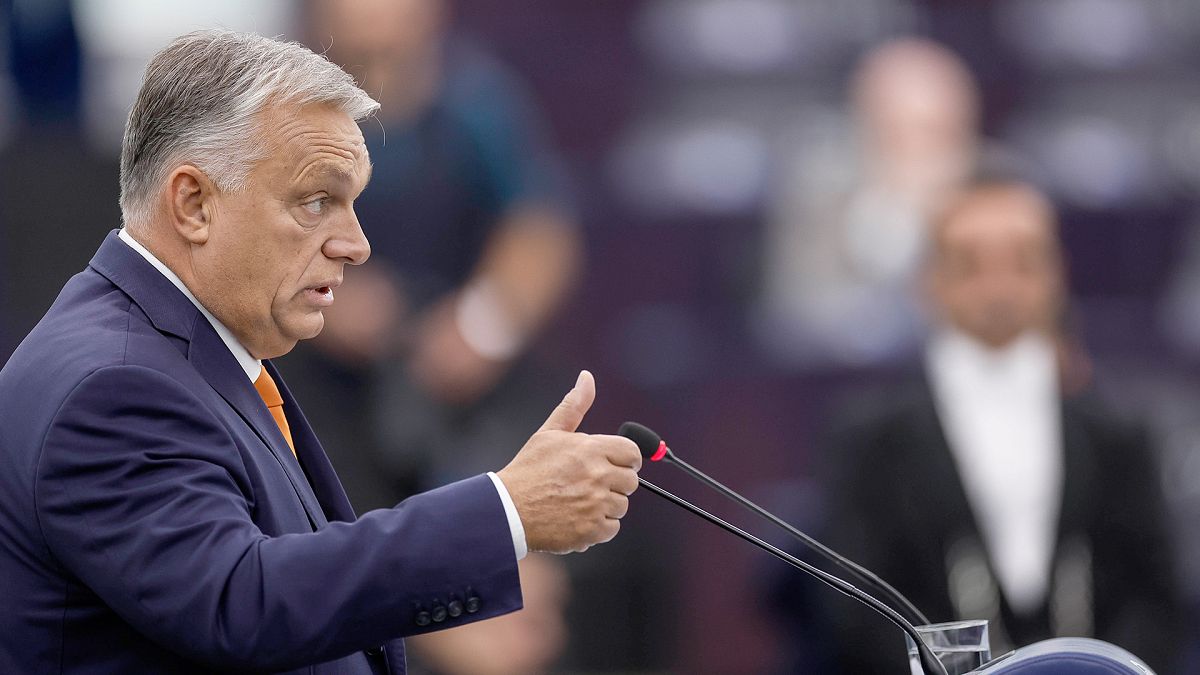
The Hungarian prime minister arrived in Vienna on Thursday, where he was received by parliamentary president Walter Rosenkranz in a meeting condemned by several Austrian political parties.
Despite criticism from other political parties, Austria’s newly elected parliament president, Walter Rosenkranz of the far-right Freedom Party (FPÖ), hosted Hungarian Prime Minister Viktor Orbán in Vienna as his first official guest.
The controversial visit took place in the Austrian parliament’s reception room, with the entire leadership of the FPÖ, including leader Herbert Kickl, reportedly in attendance.
After the meeting concluded, Orbán had a separate, private meeting with Kickl. However, nothing was initially revealed about the content of their conversation.
Rosenkranz said the meeting had been arranged before he took office.
Other Austrian parties, including the Greens and Social Democrats, had resisted Orbán’s visit. Green party parliamentary leader Sigrid Maurer said the FPÖ views Orbán as a role model, which should be considered “an absolute warning signal.”
FPÖ finished first in the recent Austrian parliamentary elections, garnering 29.2% of the vote in the country’s first far-right election win since World War II.
Experts say the party managed to tap into Austrian anxiety on housing and healthcare, as well as often successfully blaming migration for a host of other issues.
As is customary within Austria, the group with the highest number of votes appoints the President of Parliament – hence Rosenkranz being elected to the second-highest state office in the country last week.
Orbán will reportedly not meet with Austrian Chancellor Karl Nehammer during the visit.
Far-right alliance in Europe
Austria’s Freedom Party and Orbán’s Fidesz party both belong to the new European far-right group Patriots for Europe.
The party shares a deep aversion to the Green Deal, EU Commission President Ursula von der Leyen’s flagship initiative to achieve climate neutrality by 2050, and have challenged the project of European integration as well as the power granted to EU institutions.
Patriots for Europe are also opposed to providing Ukraine with military equipment, question the efficiency of Western sanctions against Moscow and want to maintain close relations with Russian President Vladimir Putin and his government.
It is the third-largest group in the European Parliament, boasting dozens of MEPs from countries like France, Italy and the Netherlands.
-

 Movie Reviews1 week ago
Movie Reviews1 week agoAlien Country (2024) – Movie Review
-
/cdn.vox-cdn.com/uploads/chorus_asset/file/25431700/STK201_SAM_ALTMAN_CVIRGINIA_A.jpg)
/cdn.vox-cdn.com/uploads/chorus_asset/file/25431700/STK201_SAM_ALTMAN_CVIRGINIA_A.jpg) Technology7 days ago
Technology7 days agoOpenAI plans to release its next big AI model by December
-

 Health6 days ago
Health6 days agoNew cervical cancer treatment approach could reduce risk of death by 40%, trial results show
-

 Culture7 days ago
Culture7 days agoTop 45 MLB free agents for 2024-25 with contract predictions, team fits: Will Soto get $600M+?
-
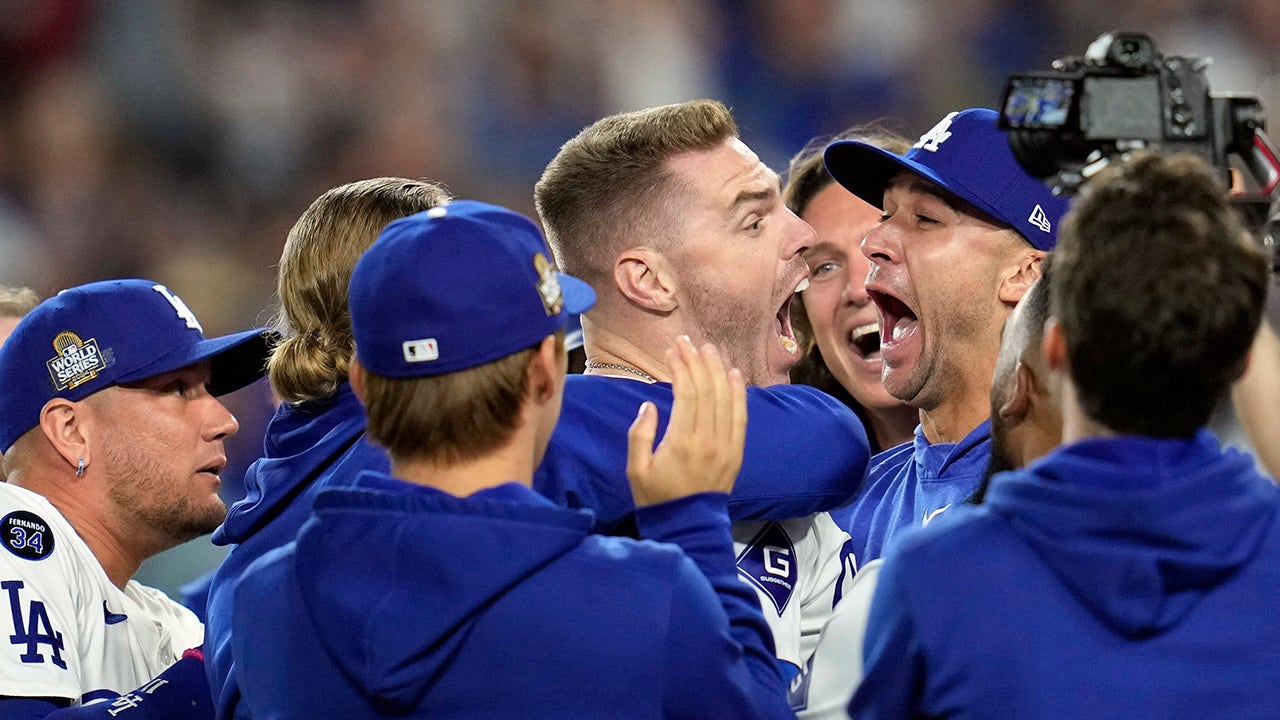
 Sports6 days ago
Sports6 days agoFreddie Freeman's walk-off grand slam gives Dodgers Game 1 World Series win vs. Yankees
-
News5 days ago
Sikh separatist, targeted once for assassination, says India still trying to kill him
-

 Culture5 days ago
Culture5 days agoFreddie Freeman wallops his way into World Series history with walk-off slam that’ll float forever
-

 Technology4 days ago
Technology4 days agoWhen a Facebook friend request turns into a hacker’s trap




